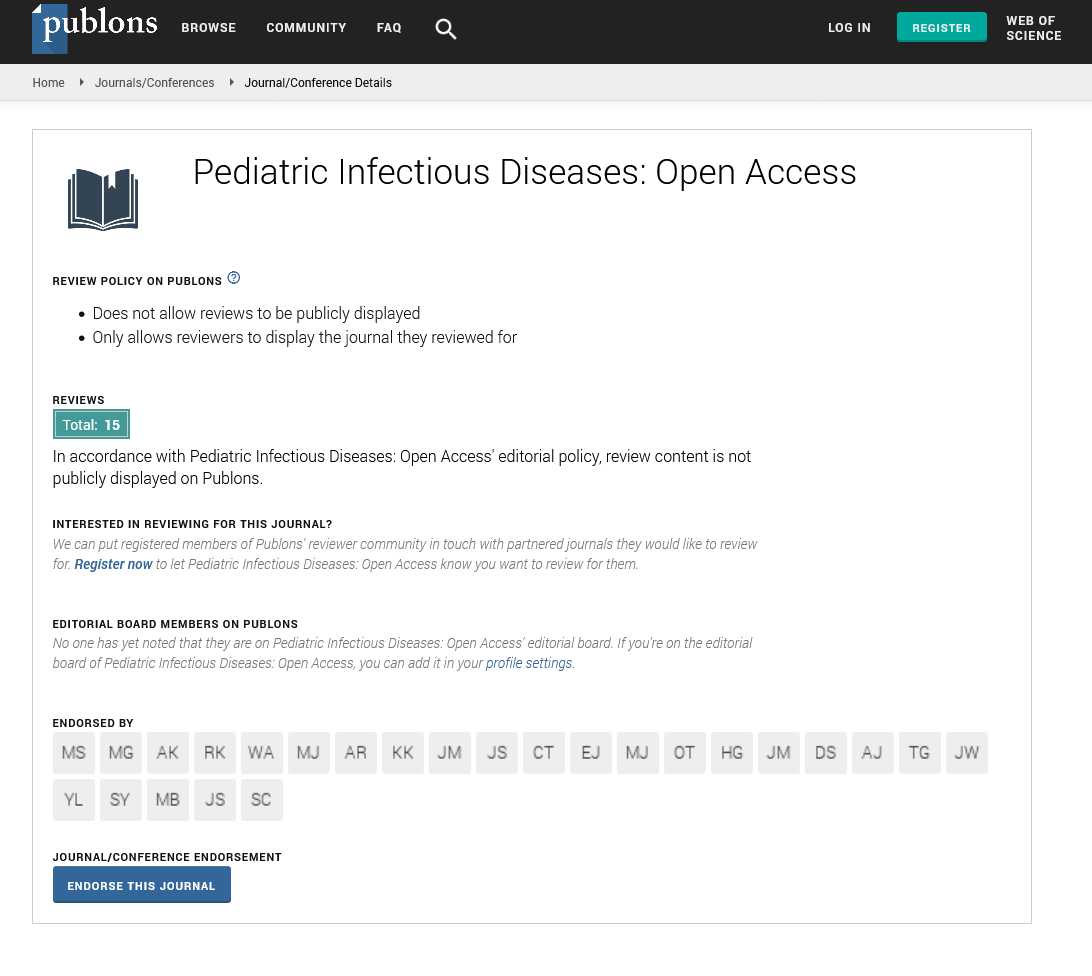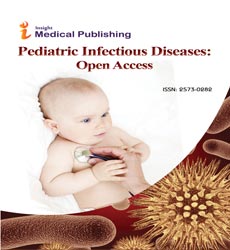Abstract
Examination of hostile to infection antibodies of measles, rubella, mumps and toxoplasma gondii in spit of Sao Paulo schools and universities
Safe and effective vaccines are a well-established public health intervention, with a major impact on the decline in the prevalence of infectious diseases, but outbreaks are occurring frequently due to primary and secondary failures. Serological control of the vaccination status and protection of a populationis essential but is based on invasive blood sampling, problematicfor children and teenagers. Saliva can be as acceptable alternative IgG source for children and other protected groups, due to IgG exuded in crevicular fluid. We intended to detect the prevalence of specific IgG response for measles, mumps, rubella and T. gondii in saliva samples, for evaluate vaccine efficiency and toxoplasmosis. For sampling, we promoted an interactive exhibition on hygiene in public elementary schools to collect 249 saliva samples from 7 to 13 years old students from São Paulo, Brazil. We developed and validated an IgG capture assayby solid phase S. aureus protein A, with revealing of IgG specificity by the use of biotinylated recombinant measles, rubella, mumps and T. gondii tachyzoites extract. This SpA capture assay fixes the same amount of IgG in the well, avoiding the IgG content variation in saliva. We used 50 validated positive sera from the IMTSP biorepository and as negative controls 40 pools of 4 samples from 160 discarded serafrom children 6 and 10 months old, after maternal IgG clearance and before vaccination, which were in routine pediatric analysis in ICr HCFMUSP. The assays had reproducibility greater than 98% and sensitivity and specificity> 95%, using sera. Saliva and sera of 47 university students were tested for paired comparison, without discordance.
Author(s): Barbara Fialho Carvalho Sampaio
Abstract | Full-Text | PDF
Share this

Google scholar citation report
Citations : 230
Pediatric Infectious Diseases: Open Access received 230 citations as per google scholar report
Pediatric Infectious Diseases: Open Access peer review process verified at publons
Abstracted/Indexed in
- Google Scholar
- China National Knowledge Infrastructure (CNKI)
- Cosmos IF
- Secret Search Engine Labs
Open Access Journals
- Aquaculture & Veterinary Science
- Chemistry & Chemical Sciences
- Clinical Sciences
- Engineering
- General Science
- Genetics & Molecular Biology
- Health Care & Nursing
- Immunology & Microbiology
- Materials Science
- Mathematics & Physics
- Medical Sciences
- Neurology & Psychiatry
- Oncology & Cancer Science
- Pharmaceutical Sciences


